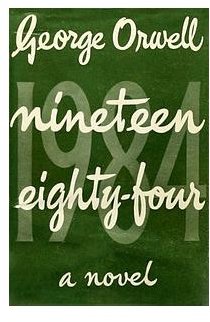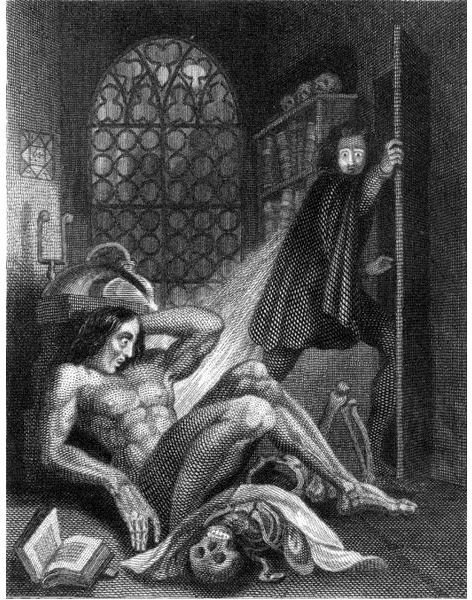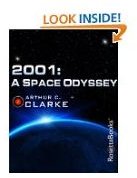Common Themes of Science Fiction Genre: Great Book Picks
Travel to the Stars
The idea of travel to other planets and beyond has fascinated humans for centuries. Science fiction writers have capitalized on this
fascination. Space travel in science fiction novels is motivated by various causes.
-
The human need to explore. Arthur C. Clarke’s 2001: A Space Odyssey tells of Dr. David Bowman’s journey to Saturn where he encounters a giant slab, similar to a slab found on the moon a few years earlier. What he finds there expands the limits of exploration astronomically. Clarke’s novel, as with most science fiction novels, does not fit tightly into one science fiction category. The novel fulfills several other science fiction themes as well.
-
An alien invasion or alien war. Earth must defend itself from the Buggers, bug-like creatures that have invaded Earth’s solar system twice, in Orson Scott Card’s Ender’s Game. This time, however, Earth’s doing the invasion and they have a secret weapon. His name is Ender Wiggin. Other books involving alien invasions or wars include H.G. Wells’ War of the Worlds, and Isaac Asimov’s short story “The Machine that Won the War.”
-
The need to colonize. Colonization, in addition to being a common theme throughout human history, has been a common theme. One of the more popular science fiction works dealing with colonization is The Martian Chronicles by Ray Bradbury, a collection of loosely connected stories involving the colonization of Mars. Other examples include Arthur C. Clarke’s Songs of Distant Earth and Kim Stanley Robinson’s Mars series.
The success of movies and TV programs involving space exploration and alien invasions signal the continued popularity of stories involving these themes.
In Search of a Better World
Although not as popular in the world of cinema as space exploration, novels involving dystopias–the opposite of utopia or perfect society–have enjoyed much popularity in science fiction literature. Dystopian novels combine the dangers of technology with out-of-control big government to produce a world where no one is happy. Famous dystopian novels include the following.

-
1984 by George Orwell. The most famous dystopian novel, 1984, chronicles Winston Smith’s futile attempt to outwit Big Brother, a symbol used by a totalitarian government that spies on its people through microphones and telescreens and manipulates history through media.
-
Brave New World by Aldous Huxley. Huxley’s Brave New World consists of genetically engineered humans who are born to fulfill specific societal needs. This world knows no freedom nor happiness.
-
Fahrenheit 451 by Ray Bradbury. It’s illegal to own books in the future. Firemen are used to burn them. Guy Montag, local fireman, begins to notice how miserable everyone is and tries to do something about it. The novel’s primary theme deals with the inability and unwillingness of people to think, choosing instead to fill their lives with music, mindless television shows and violent sports.
-
Player Piano by Kurt Vonnegut. Machines have replaced practically every job in the United States. Machines, in fact, decide what each individual should do for a living. This reliance on machines creates a world where a small percentage of engineers and managers rule and a large majority of individuals either serve in the army or complete thoughtless reclamation projects for the government.
Dystopian novels serve as a warning. Other worthwhile examples include Ayn Rand’s Anthem, Isaac Asimov’s Caves of Steel, Orson Scott Card’s Ender series, Lois Lowrey’s The Giver and Anthony Burgess’ Clockwork Orange.
Taking a Trip through Time
In the book N.E.R.D.S by Michael Buckley, one of the nerdy spies concludes that time travel is theoretically possible, although it would take 50,000 times the amount of energy the entire planet could provide. I have no idea if that’s true. These science fiction books also deal with time travel.
-
The Time Machine by H.G. Wells. The time travel undergone by the story’s protagonist in Wells’ classic is far into the future where what few Earthlings remain live in fear of underground hunters.
-
Slaughterhouse Five by Kurt Vonnegut. Time travel in Vonnegut’s slapstick comedy about the bombing of Dresden occurs involuntarily, leading to the conclusion that humans have no control over their destiny.
-
A Connecticut Yankee in King Arthur’s Court by Mark Twain. Twain’s satire on the days of King Arthur isn’t usually classified as science fiction. It does, however, fit into the time-traveling science fiction theme.
-
The Hitchhikers Guide to the Galaxy by Douglas Adams.The Hitchhikers Guide is comprised of five books that involve, among other things, a scene from the beginning of Earth and a scene at the end of the Universe.
-
The Time Traveler’s Wife by Audrey Niffenegger. A genetic disorder causes the protagonist to unpredictably travel through time, forcing him to live his life out of order.
-
A Sound of Thunder by Ray Bradbury. Ray Bradbury’s classic short story deals with the now cliched “Butterfly Effect” as the killing of a butterfly alters the planet millions of years in the future and changes the results of a presidential election.
Of all the common themes in science fiction books, nothing generates livelier discussion than time travel.
They’ve Created a Monster!
The use, or more accurately described as misuse, of technology to create monsters, robots, cyborgs or artificially intelligent beings that turn on humans is a classic science fiction theme. These novels focus on the potential dangers of such technology.

-
Frankenstein by Mary Shelley. Dr. Frankenstein creates a monster out of dead body parts and electricity. As you might imagine, good rarely happens when you create a monster out of dead body parts and electricity.
-
I Robot by Isaac Asimov. Asimov’s robot novels show that no matter how many precautions robot makers implement to make sure robots don’t turn on their creators, it will backfire.
-
Jurassic Park by Michael Chrichton. After reading Jurassic Park, you’ll most likely agree that, as far as humans are concerned, the planet was better off without dinosaurs. That does not, however, stop scientists from creating an island of dinosaurs constructed for wealthy tourists.
Many of the novels already listed contain robots. They include 2001: A Space Odyssey and The Hitchhiker’s Guide to the Galaxy.
This is by no means a comprehensive list of all the great science fiction novels ever written. It is, however, a good place to start.
References
- Frankenstein image courtesy of Wikimedia Commons.
- Author’s experience reading and teaching science fiction.
- 1984 image courtesy of Wikimedia Commons.
